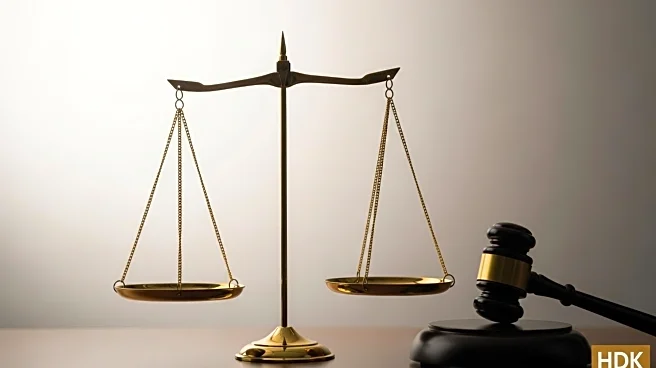What's Happening?
Voting machine company Dominion has reached a confidential settlement in its $1.3 billion defamation lawsuit against Rudy Giuliani, former attorney for President Trump. The lawsuit was filed in January 2021, accusing Giuliani of spreading false allegations about Dominion's involvement in the 2020 presidential election. The settlement follows a similar agreement with Sidney Powell, another former Trump attorney. Details of the settlement have not been disclosed, and a court filing indicates the parties are seeking a voluntary dismissal of the case. Each party will bear its own legal fees and costs.
Why It's Important?
The settlement marks a significant development in the legal battles stemming from the 2020 presidential election. Dominion's lawsuits against Giuliani and Powell were part of broader efforts to combat misinformation about election integrity. The resolution of these cases may influence public perception and future legal strategies regarding defamation and misinformation. It also highlights the financial and reputational risks faced by individuals and entities involved in spreading false claims. The outcome could impact how similar cases are handled in the future, potentially deterring others from making unfounded allegations.
What's Next?
With the settlement reached, the case against Giuliani will be dismissed, concluding a legal battle that lasted over four years. The resolution may lead to further scrutiny of other individuals and organizations involved in spreading election-related misinformation. Legal experts and stakeholders will likely analyze the implications of the settlement for future defamation cases. Additionally, Dominion's actions may encourage other companies to pursue legal remedies against false claims, potentially shaping the landscape of defamation litigation.
Beyond the Headlines
The settlement underscores the challenges of addressing misinformation in the digital age. It raises questions about accountability and the role of legal systems in curbing false narratives. The case also highlights the intersection of politics, media, and law, illustrating how legal actions can influence public discourse. As misinformation continues to be a pressing issue, the resolution of high-profile defamation cases like this one may contribute to broader efforts to promote truth and transparency in public communications.










